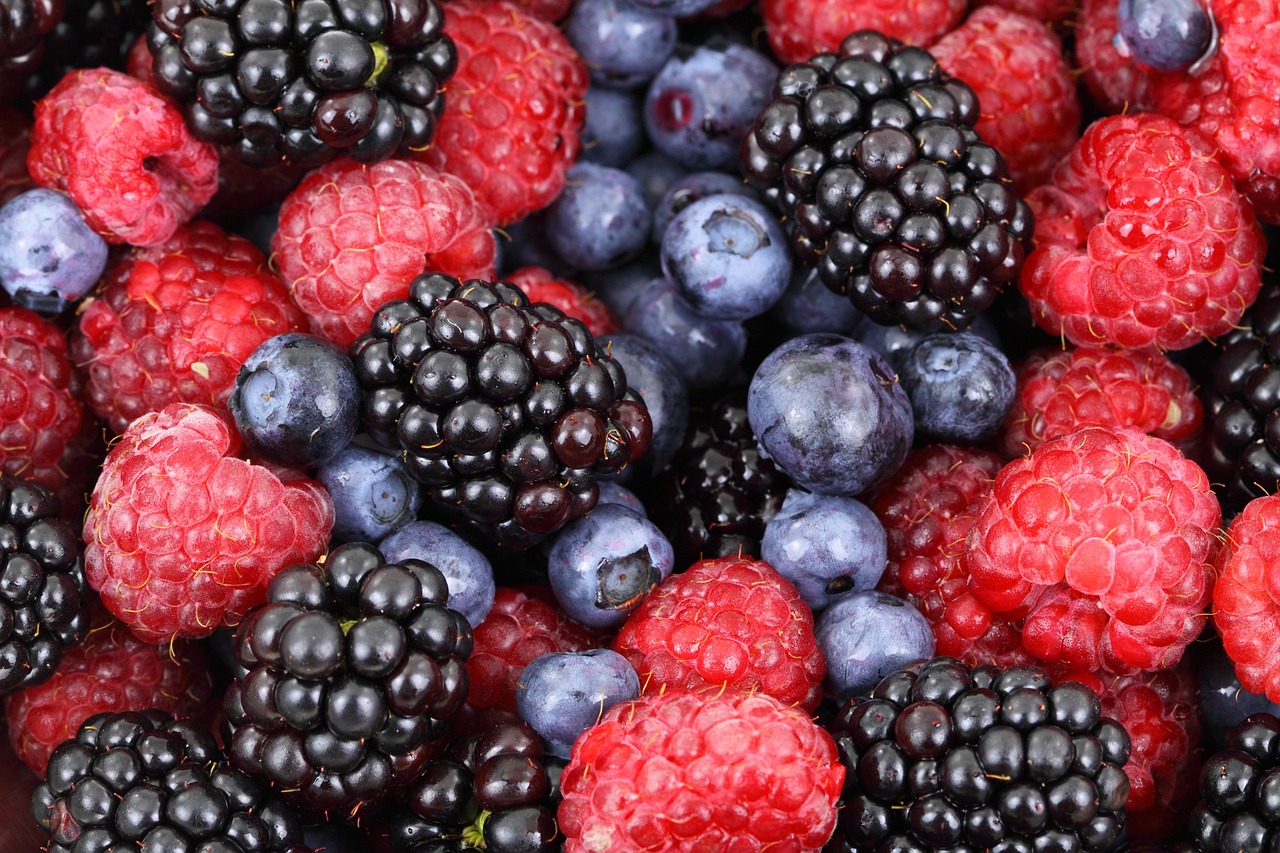

Forest fruits are the richest in antioxidants
It is important to eat at least one fruit every day, but studies show that berries ought to be among our options more often.
“Apparently, people who eat more berries seem to live a little longer,” Eric Rimm – a professor of epidemiology and nutrition at the Harvard TH Chan School of Public Health – told the Washington Post.
Could this be the secret to longevity?
Studies have repeatedly demonstrated that antioxidants can significantly diminish the effect of free radicals, reduce oxidative stress, and improve immune function, thus supporting health and, implicitly, longevity.
All fruits contain antioxidants, but if we were to draw up a ranking in this regard, blueberries, blackberries and raspberries would lead by far, followed by pomegranates, according to a study published in the Journal of Agricultural & Food Chemistry. They are rich in anthocyanins, ellagic acid, and resveratrol, which help reduce oxidative stress – the basis of premature aging of the body, favoring the emergence of diseases, and triggered by free radicals.
Moreover, berries provide potassium, magnesium, vitamins C and K, fiber and prebiotics – which help maintain a healthy gut.
The intense color of the berries is also an indication that they contain large amounts of flavonoids – organic compounds with antiviral, antiallergic, antitumor and, of course, antioxidant properties.
Another advantage of berries is their anti-inflammatory properties. A disorganized lifestyle, unhealthy, food and stress can trigger inflammatory responses in the body that can turn into conditions like diabetes, heart disease, obesity, or even cancer, over time.
Antioxidants are also essential for the skin, as they help protect it against oxidative damage caused by free radicals and environmental aggressors, such as UV radiation and pollution. Antioxidants are often found in skin care formulas, due to their powerful anti-aging effects. But the intake of antioxidants from within could enhance their effects, and a single daily serving of berries is enough for that.
Add a handful of blueberries to your breakfast cereal, snack on a few strawberries or raspberries when you are feeling low at work, or sprinkle a few blackberries into a goat cheese and pecan arugula salad tossed with balsamic vinegar, and you have gotten your fill of antioxidants without going overboard with it. The important thing is that, in a short amount of time, you will see and feel the effects, translated into a general state of well-being.
There is only one dilemma left to clear up: fresh, frozen, or dehydrated?
Obviously, fresh fruits, picked in season, are the most nutritionally valuable (and the most flavorful), but in the case of berries, freezing does not reduce their potential at all, experts say, even suggesting that “some frozen varieties may have a higher concentration of nutrients.” That is great news, especially if you happen to buy a few extra berries or find a few crushed (you can add them to a smoothie straight from the freezer).
As for dried berries, if they are not processed with added sugar, they “contain about the same amount of nutrients as fresh fruit, but condensed into a much smaller amount,” says Healthline.com, with dried fruit thus containing up to 3.5 times more fiber, vitamins and minerals, compared to the same amount of fresh fruit. You can rehydrate them by adding them to oatmeal, smoothies or yogurt, and in powder form they can add flavor and color to desserts such as muffins, meringue creams, or glazes.





No Comments